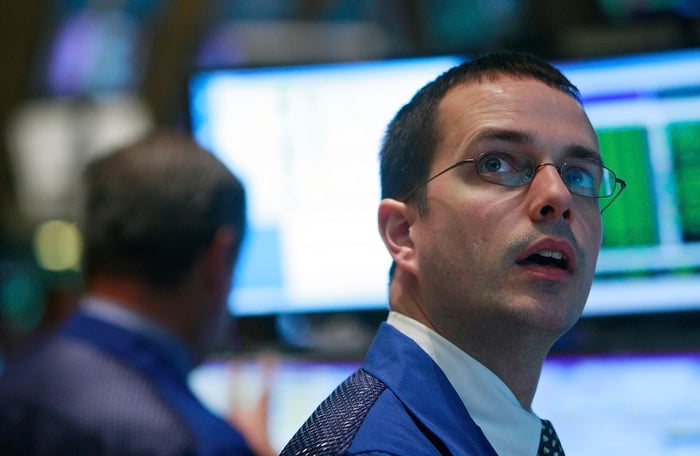|
|
|

|
|||||

|
|
Zcash is in a powerful uptrend.
It's scarce like Bitcoin, and it also has useful privacy features.
Regulators are going to be a constant stumbling block in the long term.
The privacy coin Zcash (CRYPTO: ZEC) is currently leading the crypto market, rising while everything else is struggling. It ripped a gain of 1,250% in the last three months alone, vaulting back into the top tier of coins by market value.
Is this strength the result of durable value creation, or is it a hot stove waiting to burn those who invest?
Where to invest $1,000 right now? Our analyst team just revealed what they believe are the 10 best stocks to buy right now, when you join Stock Advisor. See the stocks »

Image source: Getty Images.
Unlike many other cryptocurrencies, Zcash is obviously valuable.
At a high level, Zcash inherits Bitcoin's (CRYPTO: BTC) supply policies, which is a massive point in its favor. Like Bitcoin, Zcash has an unchanging hard cap of 21 million coins that can ever exist, and a mining-based issuance schedule that halves its reward about every four years, steadily reducing new supply entering the market and creating the conditions for scarcity to boost its price over the long term. Zcash's second halving arrived in late November 2024; historically, at least in the case of Bitcoin, the 18 months following the halving tend to be very profitable times to be a holder.
It's undeniable that Zcash's recent surge has been visible enough to overtake the leading rival privacy coins by market cap, and it may portend a broad revival in privacy-focused assets.
On that front, under the hood, the technology of this chain is a major appeal. Zash popularized the use of zk-SNARKs, a form of cryptography that lets the network validate transactions without revealing amounts or counterparties on-chain. In a nutshell, when used properly it's possible to use Zcash in privacy such that nobody will know who you're transacting with or for how much. That privacy utility is very different from Bitcoin's transparency, and it is precisely what some investors are seeking as on-chain activity becomes more surveilled by numerous actors.
If you squint, the investment thesis for Zcash looks a lot like a privacy-tilted cousin of Bitcoin's scarcity story, with decreasing new supply and an expanding set of holders who value the asset's specific use case.
Now, let's take a look at the devil's advocate view of this coin.
From that perspective, Zcash's strongest differentiator, its privacy features, is also its heaviest baggage. Policymakers around the globe have repeatedly targeted privacy coins with new regulations or outright bans, which constrains crypto exchange listings, liquidity, and mainstream adoption, especially among the largest potential adopters like financial institutions.
These aren't solely academic concerns. Japan effectively banned privacy coins from domestic exchanges in 2018, leading platforms to pull Zcash. South Korea required exchanges to delist privacy coins in 2021 as part of tightening anti-money-laundering rules. Europe has also dealt with intermittent delistings and shifting regulations, leading to a frustratingly unpredictable access environment. It's probable that the E.U. will prohibit privacy coins altogether, contingent upon implementing specific regulations.
So whereas Bitcoin has a scarcity narrative that is increasingly institution-friendly, Zcash's privacy design makes it far more likely to be left out in the cold, especially if regulators continue to aggressively disfavor or attempt to stomp out the privacy coin segment as a whole. That doesn't negate Zcash's utility, but it does mean the path to durable adoption depends on a shift in regulatory disposition as a whole, which does not appear to be happening, and might not ever.
Moreover, this asset's price is obviously on a hot streak right now. Another near-term risk is that buyers today could be stuck underwater for an uncomfortably long time if sentiment suddenly cools or exchange listings tighten again.
Therefore, Zcash probably isn't the right pick for most investors, even if it will probably continue to gain in value quite quickly for a while longer. A reasonable plan if you are still intrigued but (appropriately) cautious is to treat Zcash as a niche position, sized small, and accumulated gradually on weakness.
If regulators eventually allow access to this coin to widen, Zcash could compound in value significantly thanks to its Bitcoin-like issuance. But if compliance frictions re-intensify or remain prohibitive -- as they most likely will -- expect long, choppy stretches without much reward once this rally fades.
Before you buy stock in Zcash, consider this:
The Motley Fool Stock Advisor analyst team just identified what they believe are the 10 best stocks for investors to buy now… and Zcash wasn’t one of them. The 10 stocks that made the cut could produce monster returns in the coming years.
Consider when Netflix made this list on December 17, 2004... if you invested $1,000 at the time of our recommendation, you’d have $595,194!* Or when Nvidia made this list on April 15, 2005... if you invested $1,000 at the time of our recommendation, you’d have $1,153,334!*
Now, it’s worth noting Stock Advisor’s total average return is 1,036% — a market-crushing outperformance compared to 191% for the S&P 500. Don’t miss out on the latest top 10 list, available when you join Stock Advisor.
*Stock Advisor returns as of November 10, 2025
Alex Carchidi has positions in Bitcoin. The Motley Fool has positions in and recommends Bitcoin. The Motley Fool has a disclosure policy.
| 10 min | |
| 5 hours | |
| 11 hours | |
| 13 hours | |
| Feb-15 | |
| Feb-14 | |
| Feb-12 | |
| Feb-11 | |
| Feb-10 | |
| Feb-10 | |
| Feb-09 | |
| Feb-09 | |
| Feb-09 | |
| Feb-08 | |
| Feb-06 |
Join thousands of traders who make more informed decisions with our premium features. Real-time quotes, advanced visualizations, backtesting, and much more.
Learn more about FINVIZ*Elite